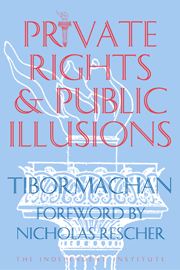In many political and philosophical debates, there traditionally exists two primary camps of opposing views. Non-interventionist and interventionists are long-standing rivals on the proper approach to sound international policy. Whether the particular agenda is stemming from neo-conservatism, imperialism, compassion, or otherwise may change with the times, but the debate remains the same. It is right that we ought to be considering the arguments of both camps. In the post-Woodrow Wilson age comes the need to reevaluate and possible redefine the American stance on global threats. Those who tout their commitment to preserving a non-interventionist’s application of “force only when provoked or otherwise directed at American allies”, must demand a thorough examination of our nation’s basic principles of dealing with international conflict.
George Washington left office with a warning in his farewell address to the new republic against becoming entangled in foreign wars. The early advice has timeless significance, both in principle and in practice, as exhibited in the criminal justice system: using force on others is only justified in self-defense.
However, American domestic public affairs have long since abandoned this theory. The U.S government now routinely coerces its citizens for all kinds of purposes. With the exception of a few steps in the right direction, such as the abolition of the military draft, many of these public policies are based on the practice of imposing burdens on citizens that they have not assumed freely under the constitutional umbrella. Even if one buys into the notion that some taxation is justified, which is actually not true, the massive confiscation of private property by means of taxation is way out of line with the principles of the American political system.
Despite our constitutional protections, courts over the decades have paved the way for politicians and bureaucrats to proceed as they wish in their fundraising efforts to finance government’s innumerable expenses. Additionally, we see illegal and immoral prohibitions galore, such as the wars and regulations against personal property. Collectively, these amount to an insidious but widespread policy of an intrusive state that is quickly manifesting into an international agenda.
But is this right? If one applies this principle to the standards of criminal law, the answer is in the negative. Current U.S engagements in Iraq, Afghanistan and most recently in Libya all violate just principles. As growing domestic and international tensions rise over the American foreign policy agenda as supported by the Obama administration, the dichotomy between non-interventionists and interventionists is resurging on the political stage.
Proponents of non-interventionism must concentrate on the importance of remaining vigilant and prepared, if and when a response is called for. A defensive stance is perfectly rational and indeed the only morally acceptable and conducive means of promoting and providing for peaceful solutions. While interventionism has become nearly habitual through all the modern precedents of coercive public policies, it cannot be justified by them. Might does not make right, nor is it a prescription for the U.S operate as a global police force.








